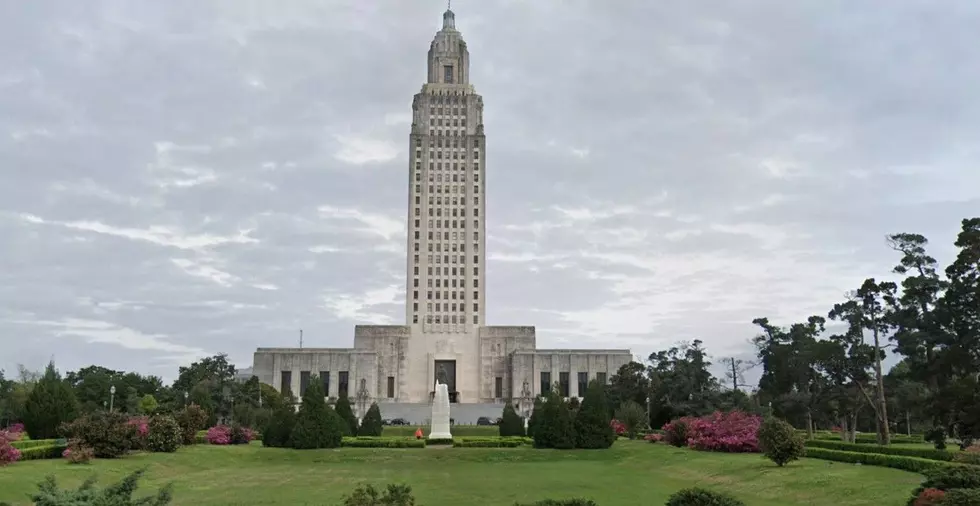
Louisiana Lawmakers Say “No” To Special Veto Session

The Louisiana Legislature as decided against a special veto session for this year.
Every year, lawmakers in Baton Rouge have the option to call a special session to review all of the bills vetoed by the Governor. Last year, the legislature called their first ever Special Veto Session.
During last year's Special Veto Session, lawmakers attempted to overturn vetoes from Governor John Bel Edwards, but all of the attempted overrides failed to gain enough votes. Which meant all of the vetoes remained in place after the Special Session.
There was speculation that the legislature could call another Special Veto Session this year to once again challenge Governor Edwards' vetoes. But it was announced to day by leadership in the Louisiana House and Senate that they will not be calling a Special Session this year.
Governor Edwards had vetoed multiple bills this year. Here's a list put together by WAFB-TV:
SB 381 - Gov. Edwards has vetoed SB 381 because it does not adequately protect the public from predatory lending practices.
HB 216 - Gov. Edwards has vetoed HB 216 at the request of the bill’s author.
SB 36 creates an unnecessary expansion of criminal code. Click here to read the veto letter.
HB 1 - Gov. Edwards line-item vetoed portions of HB 1. Click here to read the veto letter.
HB 544 - Gov. Edwards has vetoed HB 544 because it is a significant rollback of the 2017 Justice Reinvestment effort, which was passed by the legislature with strong bipartisan support.
SB 44 - Gov. Edwards also issued a letter regarding his decision to let SB 44 become law without his signature. Click here to read the letter.
HB 661 would limit the authority of a parish president or mayor to have authority over a state building inside their parish or city during a declared emergency. This bill is simply too broad.
SB 145 would allow any charter school group with a corporate partner to submit a proposal directly to BESE for approval, bypassing the authority of the local school board for the jurisdiction in which the charter school intends to locate. The consequences of eliminating local approval of charter schools and diverting MFP dollars far outweighs any administrative benefit that may be received.
SB 379 seeks to not just use juvenile adjudication as an enhancement to a penalty provision; it seeks to establish the previous juvenile adjudication as an element of a new crime committed as an adult, requiring proof beyond a reasonable doubt. There are serious constitutional issues surrounding this bill.
HB 145 provides for a change in the Administrative Procedure Act by requiring agencies to notify all members of the legislature, via email, of administrative rule changes and the adoption of fees. Current law already provides for a requirement that the legislative leadership and the appropriate oversight committees of the legislature be notified of these administrative changes. This bill does not provide any additional transparency or oversight and could have significant, though perhaps unintended, effects.
HB 359 would require any election official to obtain the permission of the House and Senate Governmental Affairs Committees before implementing any “federal directive or guidance pertaining to elections without an explicit state or federal directive to do so.” The state and local officials should make every effort to encourage people to vote, make it easier for them to vote, and make sure every legal vote is counted. This bill does not further that goal, and it should not become law.
HB 492 contains a provision that provides an immunity, to sheriffs’ offices only, for arresting an individual when a written summons was authorized. The effect of this change provides for clear inequitable treatment for law enforcement agencies.
What Are the Largest Cities in Louisiana?
Top Employers in Shreveport Bossier Area
Empty Storefronts In Mall St. Vincent
More From Highway 98.9









